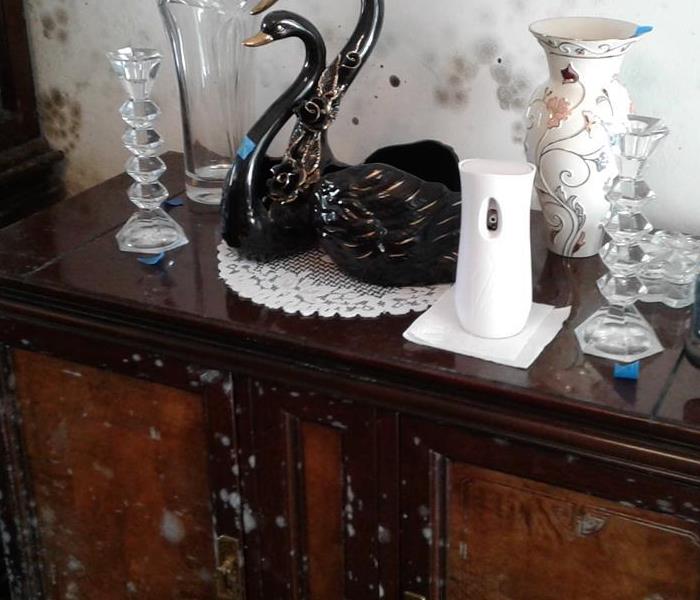Mold Remediation of Contents
4/9/2018 (Permalink)
Mold remediation porous and nonporous contents.
When contents are affected by microbial contamination there are a few questions to ask before deciding to proceed with the remediation project what is the level of contamination? Is the contents porous or nonporous? There are 3 levels of contamination and There 2 main types of contents
Conditions
Condition 1 is when normal atmospheric conditions are present and mold spore count and type are at normal levels. Normal levels can vary depending on the climate for any particular region
Condition 2 is when abnormal atmospheric conditions are present and mold spore count have been amplified and the types of spores that are not normally present are now present and spore settelation has begun
Condition 3 is when colonization is present (actively growing on surface) extreme spore count in atmosphere
Contents types
Porous porous materials have a low permeance factor,( permeance is the measure of the degree to which a material allows fluid to permeate it). Porous contents in a condition 2 environment maybe difficult to remediate but not impossible for clothing and linens follow the manufactures cleaning instructions. Upholstered contents must be inspected thoroughly and then cleaned according to the manufactures instructions incorporating hepa vacuuming before and after the cleaning process. Porous contents in a condition 3 environment are not a good choice for remediation before considering remediation of porous contents in condition it would be a good idea to consult with an indoor environmentalist https://www.IICRC.org/standards/IICRC-s520
Non porous non porous materials have a high permeance factor.non porous contents in a condition 2 environment can be cleaned using a disinfectant product such as benefect or other cleaning solutions along with hepa vacuuming before and after cleaning. Non porous items in a condition 3 environment require micro cleaning of every surface in and out and may need to be cleaned several times along with hepa vacuuming for complete remediation https://www.epa.gov/mold






 24/7 Emergency Service
24/7 Emergency Service
